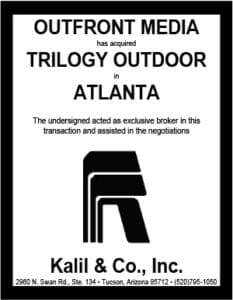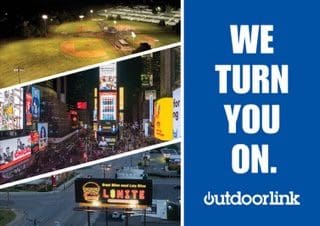
As Billboard Insider reported in its June 25th edition, Tennessee Governor Bill Lee signed into law last week HB 2255, which is designed to fix the First Amendment challenges to Tennessee’s version of the Highway Beautification Act raised in the Thomas vs Bright case. Thomas secured rulings from the Federal District Court for the Western District of Tennessee in 2017, which was affirmed by the Sixth Circuit Court of Appeals in 2019, that the Tennessee HBA was content-based in its definitions, exemptions, and regulations of on-premise and off-premise signs. Like most of the HBAs across the country, Tennessee’s “Billboard Regulation and Control Act” differentiated between the types of signs depending on whether the messages they displayed related to goods, services, or businesses located on or off of the premises where the sign was located. Following precedent established in the 2015 US Supreme Court’s decision in Reed vs Town of Gilbert, the trial and appellate courts in Thomas effectively held the Tennessee HBA unconstitutional and unenforceable.
According to the official Bill Summary, the amended Tennessee Act “distinguishes between outdoor advertising that is ‘off-premise’ and that is ‘on-premise,’ with pertinent distinctions being the proximity to the business that is advertised and whether compensation is received for the display of the message or given for the right to locate or operate the devise on another person’s property.” More specifically, the Act redefines what was previously called an “off-premise sign” as an “outdoor advertising device,” as follows:
“(A) Operated or owned by a person or entity that is earning compensation directly or indirectly from a third party or parties for the placement of a message on the sign; or
(B) Located on a facility’s parcel owned or operated for the primary purpose of displaying a sign for purposes set forth in item (1)(A) above.”
Insider included a quote from OAAT CEO/Executive Director Tammy Pillips-Dudley in its recent edition, which generally welcomes the certainty that the legislation will bring back to the Tennessee billboard operators, who can now move forward after remaining in limbo for years during the pending legislation and litigation efforts. However, while the revised Tennessee Act indeed redresses the constitutional defects raised in Thomas vs Bright going forward, the litigation remains pending, as the State of Tennessee has appealed it to the US Supreme Court. And, even though the State or Court might now consider the underlying First Amendment challenges resolved and therefore “moot,” what will happen to the precedents established in the District and Circuit Courts’ opinions? For example, can Thomas rely on those standing opinions to recover the permit fees and/or attorneys fees he paid due to Tennessee’s attempted enforcement of an unconstitutional HBA, before it was cured by these legislative efforts? Or, for that matter, can the other Tennessee billboard operators who paid permit fees for years under the Tennessee HBA held to be unconstitutional in the Thomas vs Bright District and Circuit Court opinions recover refunds for those payments?
Like many other quandaries, the answers to these questions may be found in Texas, which has recently experienced its own version of a legislative and litigation fix associated with the Texas HBA. In my next article, I’ll discuss how the Texas Legislature and the Texas Supreme Court addressed the case of Auspro vs Texas Department of Transportation, and how a similar result may occur in Tennessee.
[wpforms id=”9787″]
Paid Advertisement

















